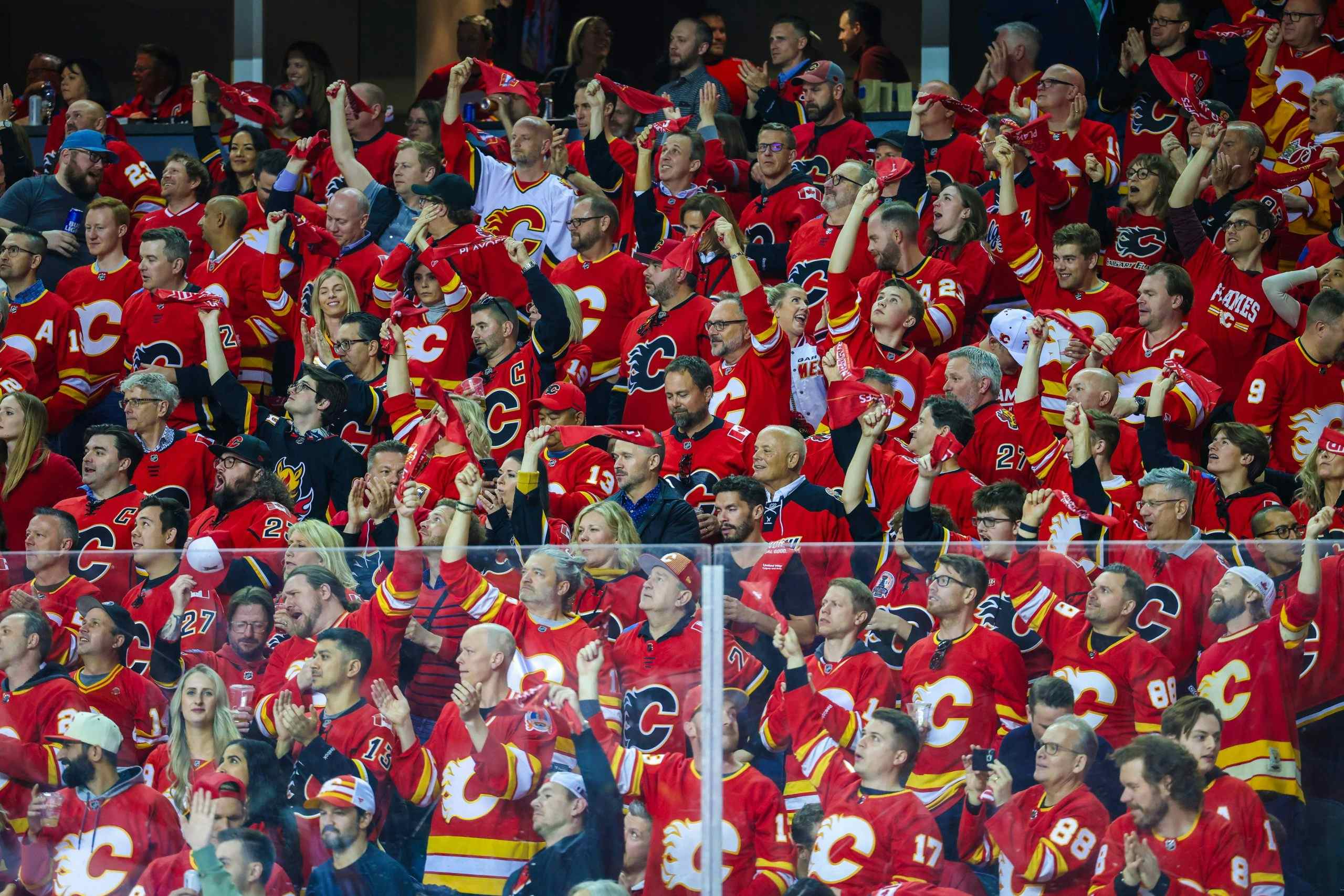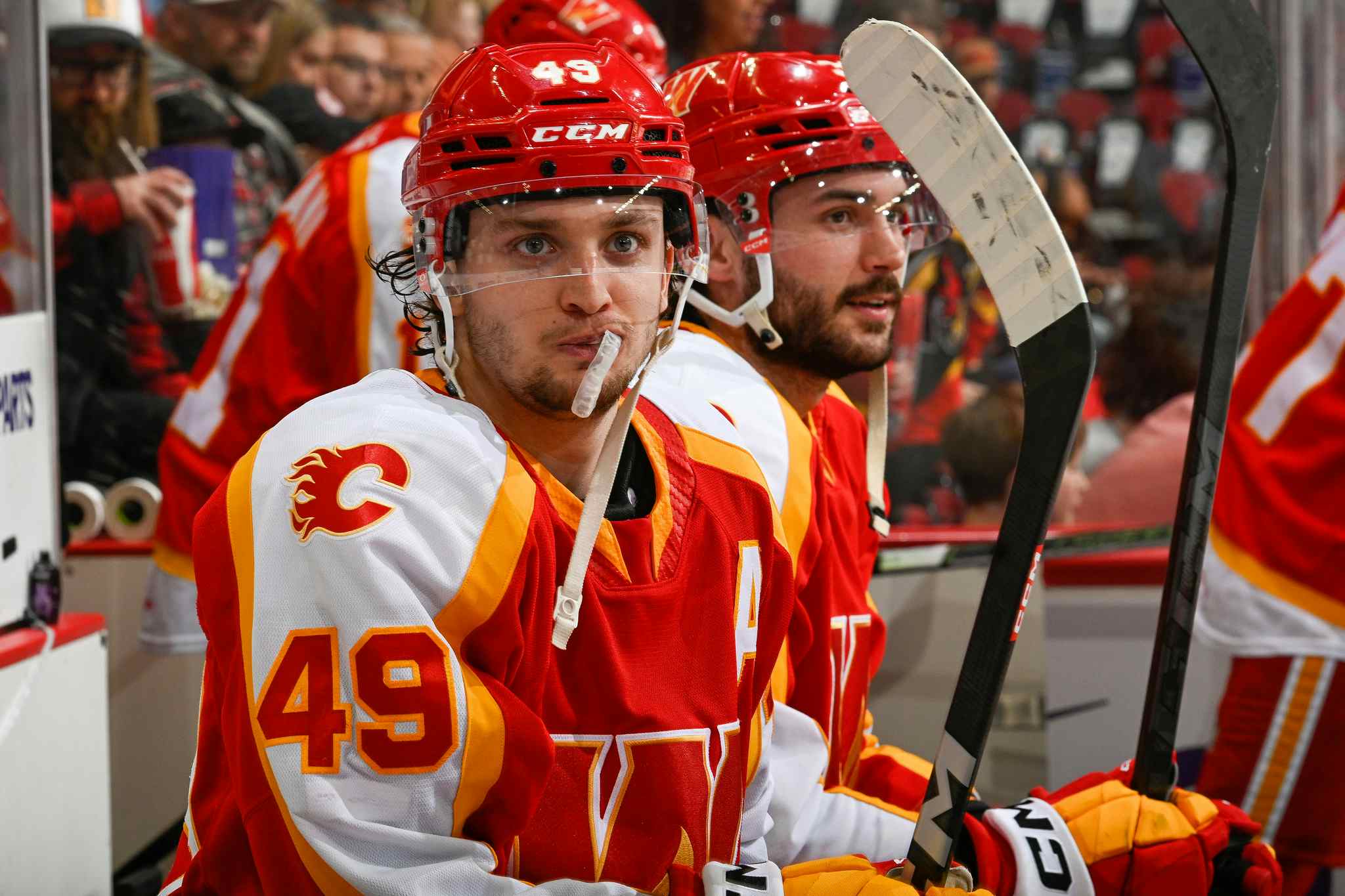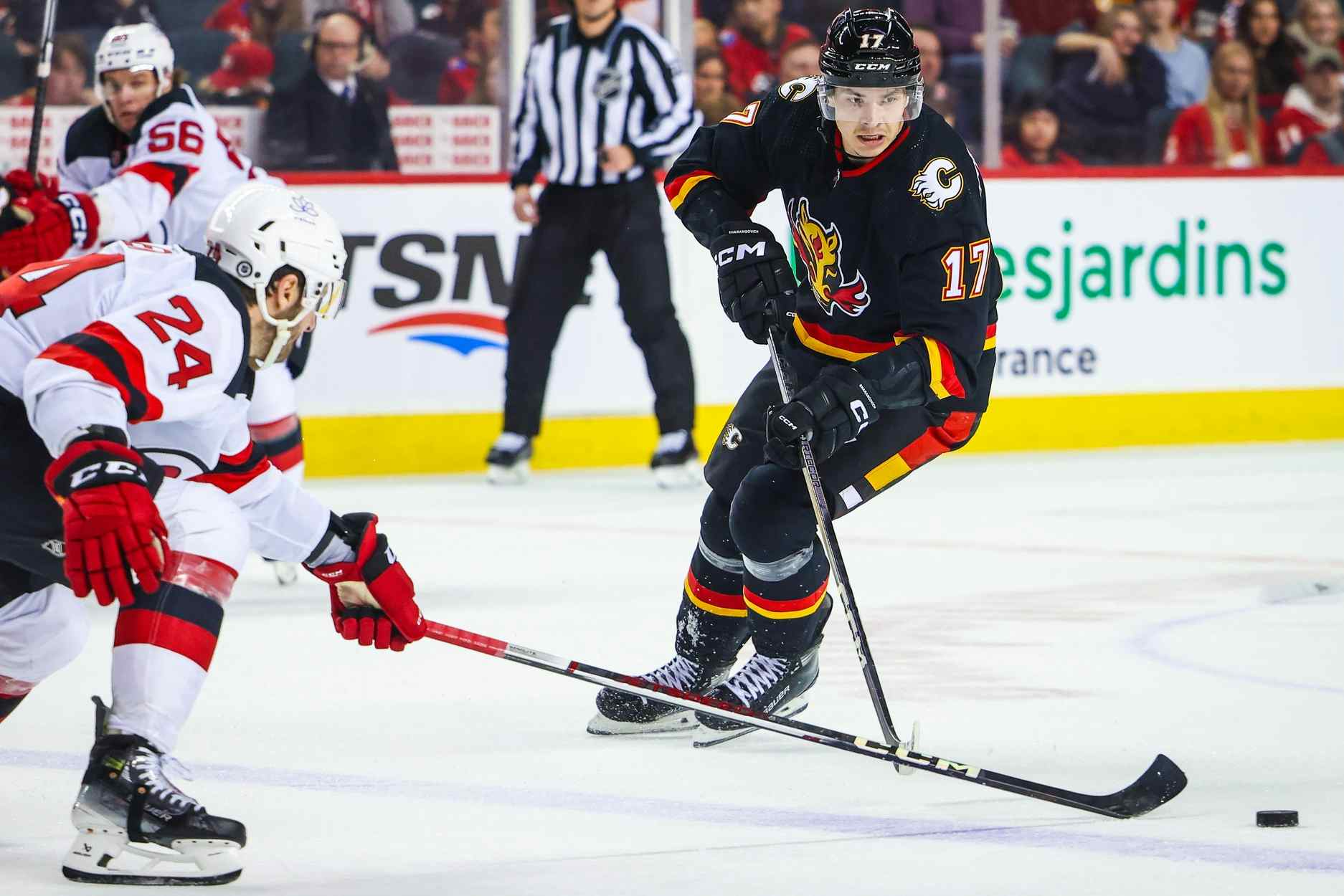Got a problem? Give Brad Treliving a year, he’ll fix it
By Ari Yanover
7 years agoWhen musing on why acquiring Brian Elliott was a smarter move than Ben Bishop, something Toofun said in the comments caught my eye:
“All together it takes our biggest liability from last year and turns it into an opportunity.”
At this time last year, the Flames’ goaltending didn’t look like it was going to be that horrible; of course, we know how that turned out. So while there aren’t any certainties heading into this season, we still have a lot more hope going in to 2016-17.
That’s what Brad Treliving did: he took the club’s biggest weakness and turned it into a cause for hope.
A quiet start
When he was hired as the Flames’ general manager on April 28, 2014, Treliving didn’t really do too much. There were the standards: draft new players. qualify some restricted free agents, let others walk. Even his signings were without theme or overarching meaning: Brandon Bollig and Deryk Engelland because grit, sure. Mason Raymond for a little more scoring in the lineup, why not? Jonas Hiller because the Flames kind of needed another goalie.
Really basic, mostly inoffensive moves (although with the benefit of hindsight, we know most were about a year too long). If anything, it was a time for feeling out the team he had inherited. Sure, there were mis-steps – who was to know Micheal Ferland would be knocking on the door sooner rather than later? – but no GM is perfect.
His first in-season move of note was to re-sign T.J. Brodie to a five-year contract with an annual average value of roughly $4.65 million, a move that’s going to find you approximately zero critics.
As the year went on, there were a few more minor moves. Then the trade deadline hit, and despite his team being in playoff position, he shed as many assets as he reasonably could and accrued draft picks, which led directly to…
2015: The defence
The Flames’ top four defencemen in Treliving’s first year were Brodie, Mark Giordano, Kris Russell, and Dennis Wideman. Because the Flames were in the playoff hunt, they looked like a capable enough group; in reality, only the top two were. Throw in the general lack of defensive prospects – Tyler Wotherspoon wasn’t being played, Brett Kulak hadn’t made an NHL debut yet, and Brandon Hickey had just one good college year to go off of, which really isn’t much – and defence was a major concern for the 2015 off-season.
Until it wasn’t. Because over the span of 24 hours, he acquired Dougie Hamilton, Rasmus Andersson, and Oliver Kylington: fixing both the NHL team’s defence and the cupboards with just a few shrewd moves.
Defence was a major problem heading in. A little over a year into the job, and Treliving had found a way to correct it. At least on paper – but it was a massive step forward, taking his team’s biggest liability of the previous season and turning it into a strength.
We haven’t fully seen the dividends from Treliving’s work on the defence, but they’ll probably start becoming much more apparent this season. With Hamilton a year settled in (plus with a new coach without previous biases), Kylington a year into his professional North American career, and Andersson set to turn pro, those good-on-paper moves should start translating to the ice.
2016: Goaltending
Just like with the defence, we should see this come to fruition over the 2016-17 season. What had been a season-long problem for the Flames was seemingly completely corrected over roughly a week.
Treliving was in fortunate position for this. He may have goofed by re-signing Karri Ramo to a one-year deal, but it was just that: a one-year deal. His Hiller signing from 2014’s free agency period was probably the best of the bunch, because it was only a two-year deal. He was left in position to have a blank slate.
If the goaltending had actually worked out in 2015-16, then fine, re-sign those guys. Because it didn’t, it was easy to just let them go – and then target two other bodies who would come at a fraction of the cost, and could be expected to provide significantly better results.
I’ve heard that the asking price for Marc-Andre Fleury was the sixth overall pick; for Ben Bishop, it was the sixth overall pick and a third rounder. Either pickup would have improved the Flames’ goaltending, but that’s a very considerable cost; instead, he was able to pry Brian Elliott out of St. Louis and pick up the ideal backup in Chad Johnson a week later.
Once again, Treliving had a year to examine his club’s most prominent fault, and give it a quick, but wholly appropriate, fix.
Hopeful transitions
Whatever has gone horribly wrong for the Flames, Treliving has been pretty quick to address it. That’s why so far, his tenure as the Flames’ general manager has been a hopeful one. Problems don’t linger any longer than they have to.
Treliving isn’t a magician – he can’t make the number of bad contracts already present on the Flames (some which he himself signed) disappear in an instant – and he isn’t perfect (hey remember that time Johnny Gaudreau had a contract with the Flames? Yeah me neither). But as the Flames work to transition from rebuilding team to legitimate Stanley Cup contender, at least on paper, their general manager has been really good at identifying problems and correcting them as quickly as possible, all the while without creating more.
His attention to the defence in 2015 and his apparent quick fix of the goaltending in 2016 are what gives me hope for the Flames to be playoff regulars in the near future. We’ll see what challenges arise and deficiencies become apparent over the course of the 2016-17 season, but with what should soon be a very flexible cap and the youth he’s already brought in continuing to grow, Treliving will probably be in perfect position to address them and get us excited for 2017-18 – and it’s all with merit.
Recent articles from Ari Yanover





